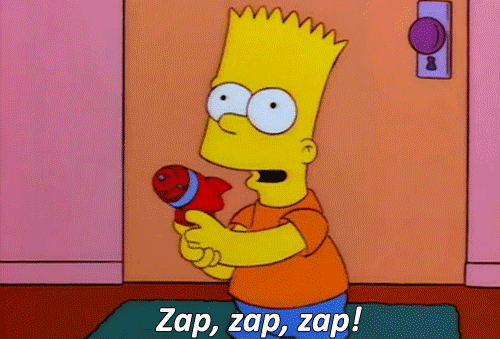Microwaves are no-doubt the most convenient appliance; however, they are also the appliance that gets the most hate. Everyone has been warned at some point about the dangers of using a microwave from claims that they produce dangerous levels of radiation, the radiation causes cancer, or they zap the nutrients in your food.

Gif courtesy of giphy.com
I am here to set the record straight and bust those myths once and for all. Microwaving your food is actually one of the best ways to cook it, especially if you want to retain some nutrients.
First, let me explain how a microwave works. Microwaves cook or reheat your food by emitting microwaves. These waves are shorter than radio waves and they primarily affect water and other molecules that are “electrically asymmetrical” (one end positively charged and the other negatively charged). The microwave causes molecules to vibrate and quickly build up heat.

Gif courtesy of giphy.com
Are you ready for this? The waves released by microwaves to cook your food are actually not harmful and they do not zap the nutrients out of your food. The claim that microwaves zap nutrients is misguided. According to a 2009 report by Gwendolyn Cross, there is no significant nutritional differences between foods prepared without a microwave and those prepared with one.
Additionally, Carol Byrd-Bredbenner, Ph.D., R.D., professor of nutrition at Rutgers University in New Brunswick, New Jersey says, “It’s the heat and the amount of time you’re cooking that affect nutrient losses, not the cooking method. The longer and hotter you cook a food, the more you’ll lose certain heat and water-sensitive nutrients.” Because microwaves usually cook foods more quickly than other methods, using one can actually help to minimize nutrient losses.

Gif courtesy of giphy.com
Let’s talk about vegetables. When it comes to cooking veggies, all cooking methods cause some sort of vitamin loss. Cooking vegetables requires water and cooking them in water causes the nutrients to leak out into the cooking water, reducing their overall nutritional value. So to retain the most nutrients in your veggies, steam them. How do you steam veggies you ask? In your handy-dandy microwave.

Gif courtesy of giphy.com
In conclusion, microwaves are a great cooking method because they retain the most nutrients in your food, cook it quickly, heat food in the shortest amount of time, and allow you to use as little liquid as possible. They will neither kill you nor the nutrients in your food.


